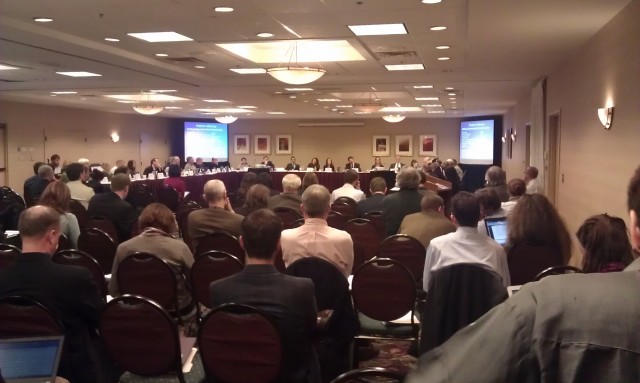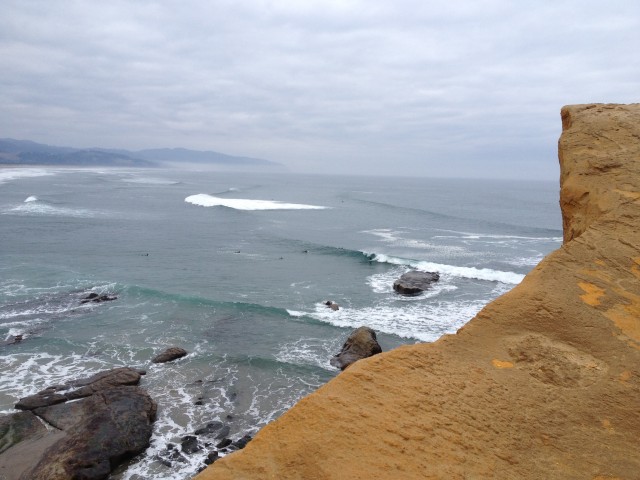
Last month regional ocean planning got underway in the Northeast United States. The Northeast Regional Planning Body met for the first time in Portland, Maine, on Nov. 19-20. “I’ve often heard the phrase ‘everyone has a seat at the table,’ but this is the first time I’ve seen it,” said National Marine Fisheries Service Regional Administrator John Bullard. His keynote statement pretty well summed up the sense of opportunity voiced by everyone attending the meeting.
We are pleased to report that there was clear agreement at the meeting that they will create an open and transparent process, ensure stakeholders are involved and the critical role of science and data in decision making – all key elements of successful ocean planning as you will recall from Ocean Frontiers.
As established by the (US) National Ocean Policy, the regional planning body (RPB) consists of representatives from federal and state agencies, regional tribes, the New England Fishery Management Council, and an ex officio member from Canada. The RPB was brought together to design the process for the first regional ocean plan to be developed in the United States.
“This is the first time that all of these representatives from various levels of the government have gotten together to begin this work,” said John Weber, the ocean planning director for the Northeast Regional Ocean Council. The fact that this collaboration is taking place, which allows for transparency as all sides are present, is looking promising for the future of our oceans and the economies that rely on them. As reported by E&E News, the regional planning body will strive to create ocean plans that reach across state and federal boundaries in an effort to reduce conflicts among fishing, offshore energy, shipping, conservation and recreation, as more users make demands on the sea.
“What it means for us is greater predictability, lower risk, lower cost. In our view, when you can identify the right places to do ocean energy, you can do everything better — you can do conservation better and can do energy development better,” said Markian Melnyk, president of Atlantic Grid Development, a group working on a proposal for a 300-mile offshore transmission network in the mid-Atlantic.
“It doesn’t have to be a fight over siting; this type of collaborative siting work helps makes it more about science and more about sound economics than about fighting,” he added.
Effective ocean planning portal tools have been launched online at by Northeast and mid-Atlantic groups. The portal is a place for compiled data and interactive maps, which allows all different types of ocean users to view ocean features such as fishing grounds, critical habitat, shipping corridors and even wind speeds. View one of the portals here.
“It is a lot easier to look at a variety of maps than to try to look through [environmental impact statement] reports,” said Tony MacDonald, Urban Coast Institute at Monmouth University director, who has helped lead these effort. “You can see areas where conflicts might be and compatibilities might be. At the end of this discussion, it should put everybody on the same base line and hopefully screen out conflicts earlier in the process.”
As this was the RPB’s first meeting, there is much work to be done, however this first step is huge and worth congratulating. To learn more about the RPB and its inaugural meeting check out Open Channels blog post here.
LEARN MORE, TAKE ACTION: National Ocean Policy Briefing
On Thursday, December 13th, 6-9pm, at the Leftbank Annex (101 North Weidler St., Portland, OR) you are invited to a free briefing on the National Ocean Policy and ocean conservation efforts in Oregon—a great way to learn how to take action in support of our oceans and coasts!
Guests attending will include the Oregon Governor’s office and Congressional staff. Presentations from Surfrider, Our Ocean, American Littoral Society will be given as well as a screening of excerpts from Ocean Frontiers. Sandwiches and refreshments will be provided. Please RSVP here.
Thanks for all you do!
Karen Meyer
Executive Director, Green Fire Productions
